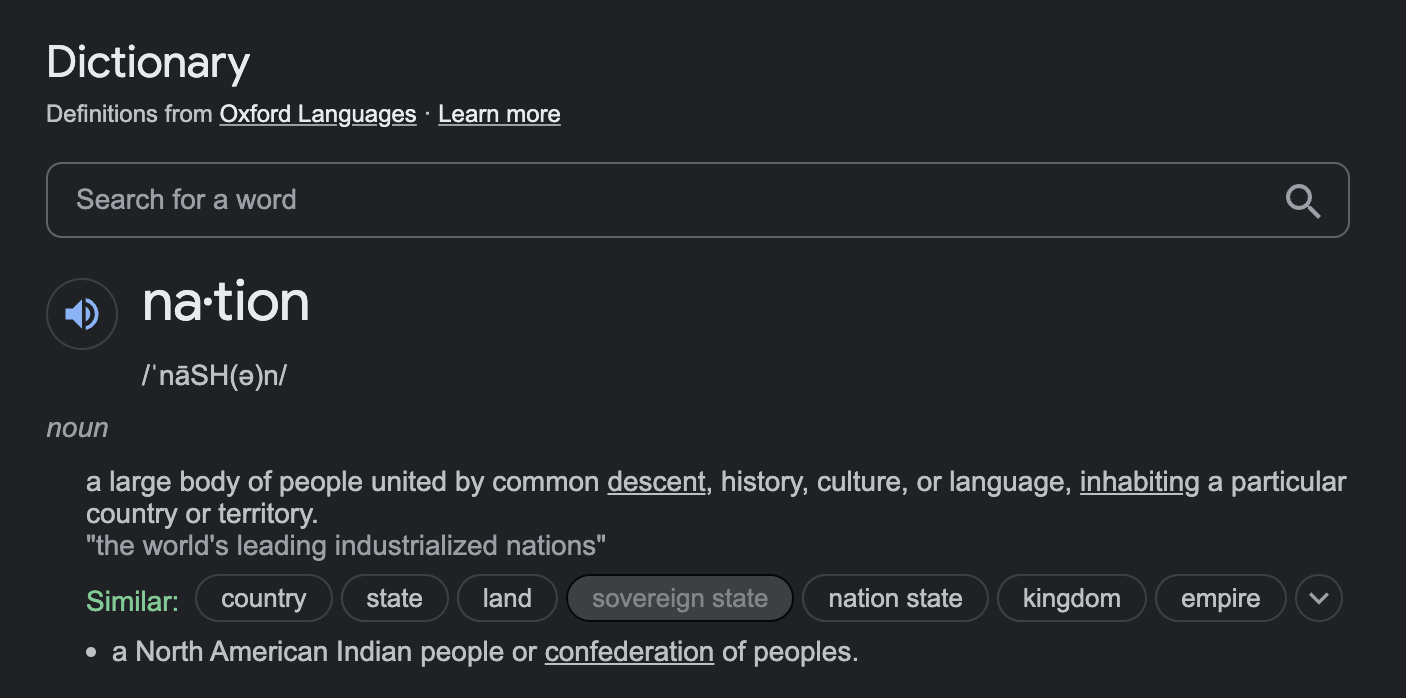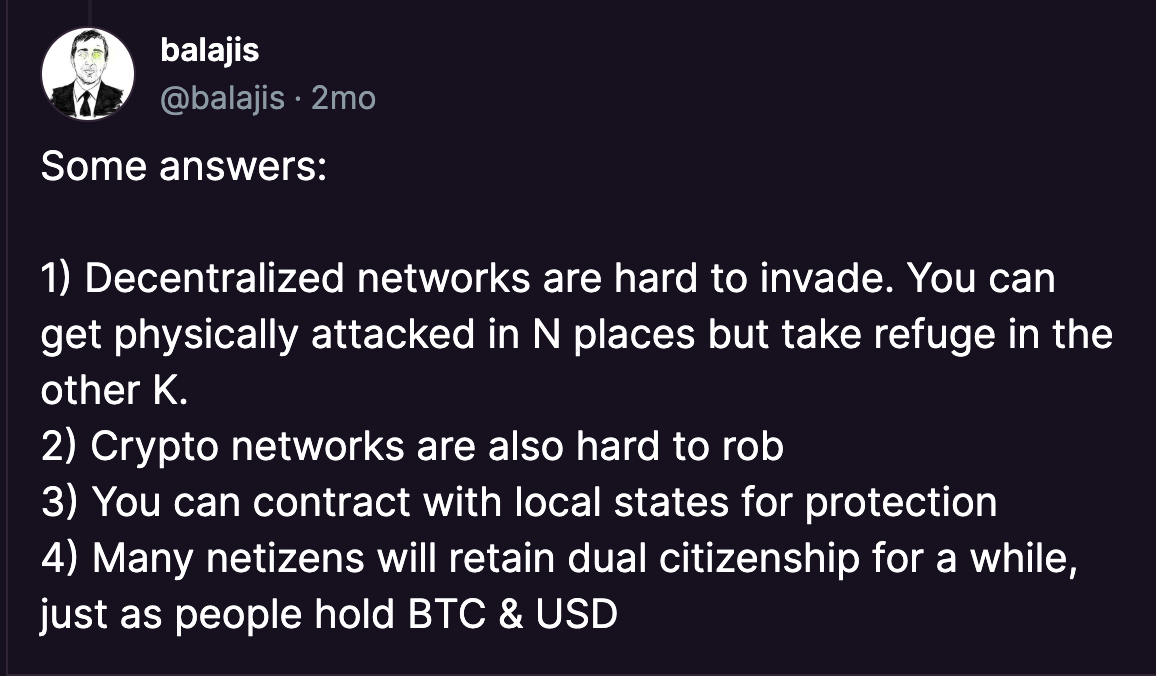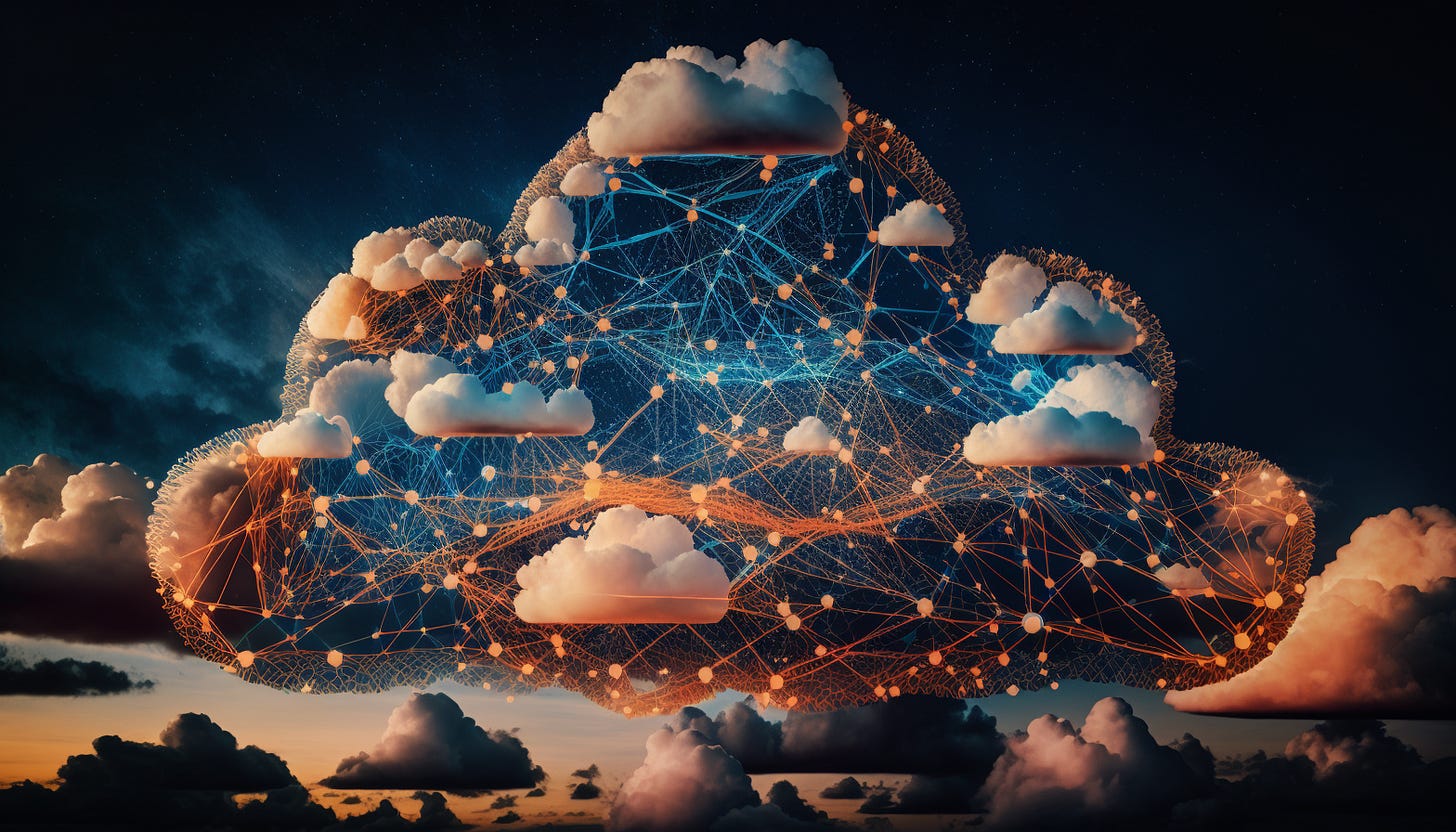Since launching
, speaking and tweeting more about network states, and hosting “Building the Network State” meetups in NYC, Vietnam, Colombia, and Singapore, I’ve noticed a recurring topic come up:Many folks go straight to the end game of owning sovereign territory and defending it against states with bigger guns
This is certainly a valid concern if you imagine that a bunch of people meet online and then try to invade a small part of some existing country, as Liberland kind of did, however I think it highlights a popular misconception of what even is a Network State, so lets dig in!
What Is a Nation State?
If the Nation State is the old version, and the Network State is the new version, lets get clear on a few definitions:
Define “Nation”
A nation is a large body of people united by common descent, history, culture, or language, inhabiting a particular country or territory. Nations can be sovereign and independent states, or they can be dependent on another state or empire.
Define “State”
According to international law, a state is defined as:
Permanent population
Defined territory
Government
Capacity to enter relations with other states
Define “Nation State”
Thus the “Nation State” is a combination of a people who make up a “Nation” and have been recognized officially as have the properties of a State.
What is a Nation but not a State?
To further illustrate what makes up a Nation State, some examples of non-state Nations would be: most indigenous peoples such as Native Americans or Hmong people, whose people are considered a homogeneous nation but do not have a recognized sovereign state.
Another example would be most religions, Christianity, Judaism, Islam, Hinduism, Buddhism may all be considered Nations, some of them even have official sovereign states for their religions, but their citizens are not necessarily citizens of those states. In fact, most members of religions are part of the Nation of that religion but have citizenship with an unrelated State, and may be a part of that Nation State due to other factors such as family history or genetics.
What is a Network State?
If we follow along with the spirit of the international law definition of a state, I would propose a new interpretation of “State” and therefore “Network State”:
1. Digital-first Population (Network over Nation)
2. Defined (Digital) Resources
3. Governance
4. Diplomatic Representation
1. Digital-first population
Instead of a permanent population, defined by the happenstance of birth, being a part of some definition of a “Nation” of peoples, a digital first population has some other interesting properties:
Digital-first communities tend to form around very specific interest groups, and a digital first population would be able to select based on interest affinities, values alignments, or any other factors they choose, not just birth geography and genetics.
The non-permanent nature also enables the population to choose their state, and the state can choose to banish or disallow members who don’t align with the values and norms of that state.
2. Defined Resources
Being cloud first, the Network State may or may not have territory, however territory is in spirit a way of loosely defining ownership of resources. In the digital era, many resources are not geography based, but exist in the cloud.
Thus we expand the spirit of “territory” to mean “resources” and we can include other valuable state owned resources such as digital assets, the skills and capabilities of the citizens (GDP), state owned media or businesses, or any number of other types of resources that the network state can draw a digital border around, including real estate fairly purchased and owned within other states!
3. Governance
With pooled resources, public goods, and values aligned memberships, there comes a need for some form of governance to ensure the operations of the Network State runs according to the desires of the people.
This implies something that I believe is the real tipping point from “community” to “state”: TAXES.
In order to pay for the overhead of bare minimum governance, a state must tax it’s citizens by either demanding their time or collecting money to pay for other’s time.
A Network State may merely wish to organize as a collective group, or they may wish to establish public goods such as physical common spaces for citizens, or even more aggressive investments into collective goods or state owned businesses.
In any case, some form of taxes must be collected, which means the state must provide some value back to it’s citizens, lest they leave for another, better Network State.
I believe the collection of taxes will be the defining moment that makes the Network State concept “real” in the eyes of the masses.
4. Diplomatic Representation
As Network States grow in size, they will need representatives of some sort in order to interact with other international entities for their benefit and ultimate sovereign recognition. I think this may be the last step in formation of a Network State, as the citizenship census, resource pooling, and governance will need to be in place before any sort of international recognition will be possible. However we may very well see a Network State ambassador to the UN within the next decade!
So what about the guys with bigger guns?
Hopefully the definitions above should make clear that a Network State does not need to be a centralized and concentrated land mass!
With a digital-first population governing digital first resources over a large geographical area (and ideally not being threatening to host states), the likelihood of the world governments showing up with guns at the doors of individuals in hundreds of countries simultaneously is incredibly low, especially if the laws in most of the countries are being followed.
In fact, the end game of a Network State does not really result in a single sovereign land such as Vatican City or Israel, but probably looks more like a collection of private cities scattered all over the world.
And even if your Network State does not establish physical territory, a large amount of values aligned citizens begins to look quite a lot like a powerful, global, political party, which can heavily influence global and local politics.
So I’m not too worried about the big guns right now, but lets see where things go in the coming decades!
PS. If you are in Singapore, join us in March!














Really insightful post, thanks for writing it. The concept of a “Network State” has been difficult for me to grasp, but this piece helps me get closer. For example here you mention that territory is a way of defining ownership of resources, which is partially true, but seems to sidestep other important aspects of a nation state’s territory: the ability of the nation state to use force within territory to enforce laws, the ability of the nation state to restrict who can enter or leave territory, etc. If instead we limit “territory” to only mean resource ownership, then we are back to the other counter argument quoted in your post: what makes a network state different than a country club?